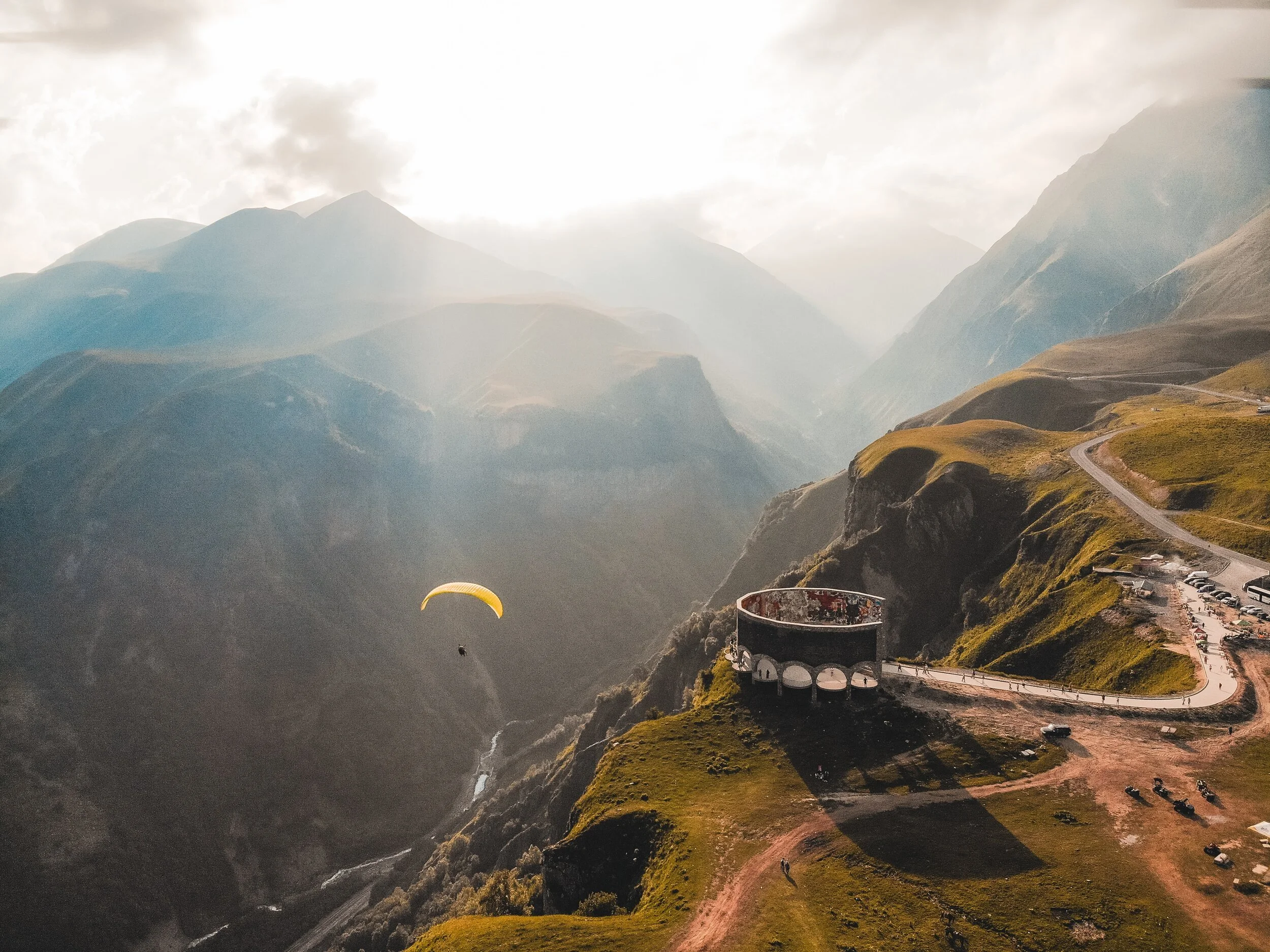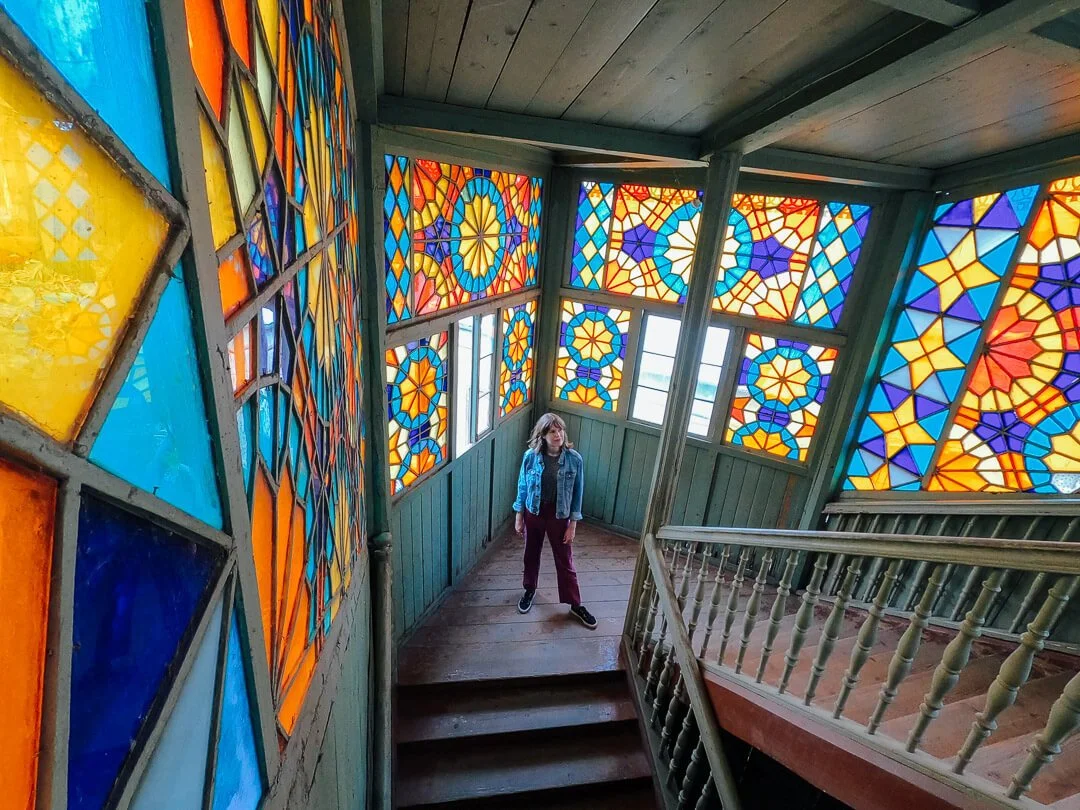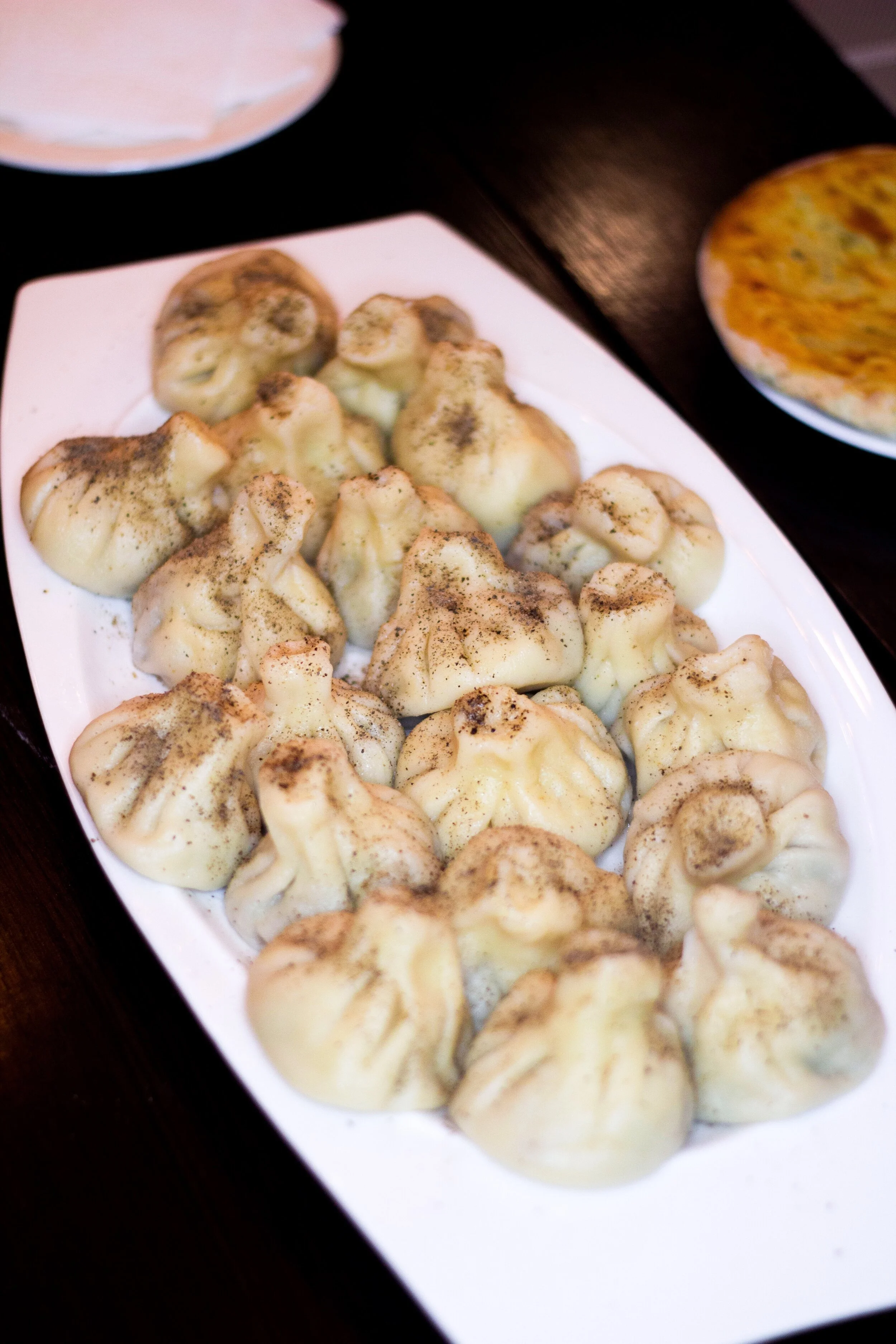Tbilisi, Georgia: What to Eat, Drink, & Do as a Traveler, Expat, or Nomad
If you love charming old towns, mountain air, and places that feel untouched by mass tourism – Georgia might just climb to the top of your travel list. This former Soviet republic, tucked between Europe and Asia, is earning a quiet reputation as an affordable, beautiful, and deeply hospitable destination. I recently interviewed Emily Lush, an Australian writer and photographer who now lives in the Georgian capital of Tbilisi, about why she fell in love with the country – and why so many others are following suit.
Emily first visited Georgia in 2017 after becoming intrigued by the region’s culture, architecture, and landscapes. “I kind of had an idea that I would love Georgia before I traveled here,” she told me. “I didn’t know anything about the country, but I had listened to podcasts, watched TV shows, and read books. I was fascinated by the culture and the landscape.”
She originally planned to spend just three months in Tbilisi, but the city’s beauty and energy lingered long after she left. She returned again in 2019, and by early 2020, she and her husband had relocated there just before the pandemic hit. “We’ve kind of been here ever since,” she said.
A Capital Rich in Contrasts
Tbilisi is a city of striking contrasts – a mix of European elegance, Persian influence, and gritty Soviet remnants. “You’ll find Armenian merchant houses and opulent mansions next to mosques and Orthodox churches,” Emily said. “The old town area is particularly beautiful, with winding streets, colorful balconies, and layers of history in the architecture.”
She recommends exploring the Sololaki district, Tbilisi’s oldest neighborhood. “You get these beautiful plaster façades, stained glass, even buildings that are a bit cracked or crumbling – it’s stunning in its own way,” she said.
For those who want a guided introduction, she suggests the “Hidden Tbilisi” walking tour, which focuses on historical buildings and interior courtyards you might otherwise miss.
Bathhouses, Balconies, and Brutalism
One essential stop is Abanotubani, the city’s traditional bathhouse district. “They’re not your typical Turkish hammams – there’s a very Georgian twist,” Emily said. She recommends Chreli-Abano for its ornate tiled façade and Gulo’s for a more traditional, rugged experience. “You can book a private room, which includes hot and cold pools, and try a ‘kisi’ scrub. It’s a little bit rough and definitely not luxurious – but it’s part of the fun.”
Beyond the bathhouses, you’ll find everything from medieval churches to Soviet-era mosaics. “If you’re into brutalist architecture or concrete, there’s plenty of that here too,” she noted.
“The Caucasus restored my faith in humanity.”
For Emily, one of the most profound things about living in Georgia has been the hospitality. “They say a guest is a gift from God, and people really take that seriously,” she said.
On a recent road trip, she and her husband asked a woman for directions. Instead of simply pointing the way, the woman let them park in her yard while her husband drove them to the trail. “When we got back, they had laid out this incredible spread – honey, jam, sweets – all homemade. That kind of generosity is really common here.”
Language, Religion, and a Complex History
Georgia’s history adds even more texture. “The country has only been independent since the 1990s,” Emily explained. “Before that, it was part of the Soviet Union and, earlier, the Russian Empire. There was a period of independence in the early 20th century, but it lasted only about a thousand days.”
Despite these external pressures, Georgia has held on tightly to its language, religion, and cultural identity. “The Georgian language is completely unique – no one really knows where it comes from. The script is beautiful, but the grammar is complex,” she said.
Orthodox Christianity is another deep-rooted tradition. “Along with Armenia, Georgia is one of the oldest Christian countries in the world, and that history is visible everywhere – in the churches, the art, the rhythm of life.”
Emily Lush surrounded by stained glass in Tbilisi, Georgia. Photo courtesy of Emily.
What It’s Like to Move There
Moving to Georgia, Emily told me, is surprisingly easy. “Citizens from over 90 countries – including the US, UK, EU, Australia, and Canada – can enter Georgia without a visa and stay for up to a year,” she explained. “While you’re here, you can work, study, or open a business without needing a separate permit.”
Opening a bank account and registering as an entrepreneur is also straightforward. It’s part of what makes the country so appealing to digital nomads and remote workers. That said, Emily advises visiting first before deciding to move. “Don’t come here just for the tax breaks or the cost of living,” she said. “Fall in love with the language, the food, the people.”
Food, Wine, and All Things Delicious
Georgia is a dream for vegetarians – and food lovers in general. “There’s so much more than khinkali and khachapuri,” Emily told me, referring to Georgia’s famous dumplings and cheese bread. “You’ve got dishes made with walnuts, eggplant, beet leaves, and incredible herbs like marigold and fenugreek.”
The country’s wine culture is also a major draw. “Georgia is the birthplace of wine,” she said. “They’ve been making it here for 8,000 years using qvevri – large clay vessels buried underground.”
She recommends a wine tour with the company Eat This!, which partners with small family-run vineyards not often found on the tourist map. The main wine region of Kakheti is just 1.5 to 2 hours from Tbilisi and is filled with charming towns, cellar doors, and scenic drives.
Great news for vegetarians in Georgia. Emily says the produce is amazing and you can enjoy khinkali, which are a bit like Chinese dumplings, Emily says. Photo by Christine Isakzhanova.
A Two-Week Itinerary: Mountains, Markets, and the Black Sea
If you’re planning a two-week trip, Emily suggests splitting your time between Tbilisi, the wine region, and the mountains. The scenic Georgian Military Highway takes you north to Kazbegi, where alpine views and cliffside churches await. “Even if you’re not a big hiker, the scenery is unforgettable,” she said.
Heading west, the landscape changes dramatically. “You get thick forests, subtropical air – it feels completely different,” she said. Highlights include the second city of Kutaisi, the mountain region of Racha, and the coastal town of Batumi on the Black Sea.
Where to Eat, Drink, and Stay
Emily’s favorites include:
Coffee Lab – “Great beans, fast Wi-Fi, and excellent for working.”
Shavi Lomi and Shemoikhede Genatsvale – “Phenomenal Georgian food – especially the salads.”
Fabrika – A creative hub with bars, a hostel, and open-air courtyard.
Writers’ House Café – “A leafy courtyard perfect for an afternoon glass of wine.”
Dezerter Bazaar – “Tbilisi’s main market. A great way to experience daily life and food culture.”
For accommodations, she recommends staying in the Old Town or Sololaki for charm and walkability, or near Marjanishvili for nightlife and café culture.
Final Thoughts
Tbilisi may not be polished – but that’s part of its magic. “It’s easy to romanticize the city,” Emily said. “But it’s also a real place, with real challenges. That’s why I say: come, travel around, see how it feels. If it clicks for you, you’ll know.”
After our conversation, I could see exactly why Georgia had cast its spell – and why so many travelers are following Emily’s footsteps, not just to visit, but to stay.



